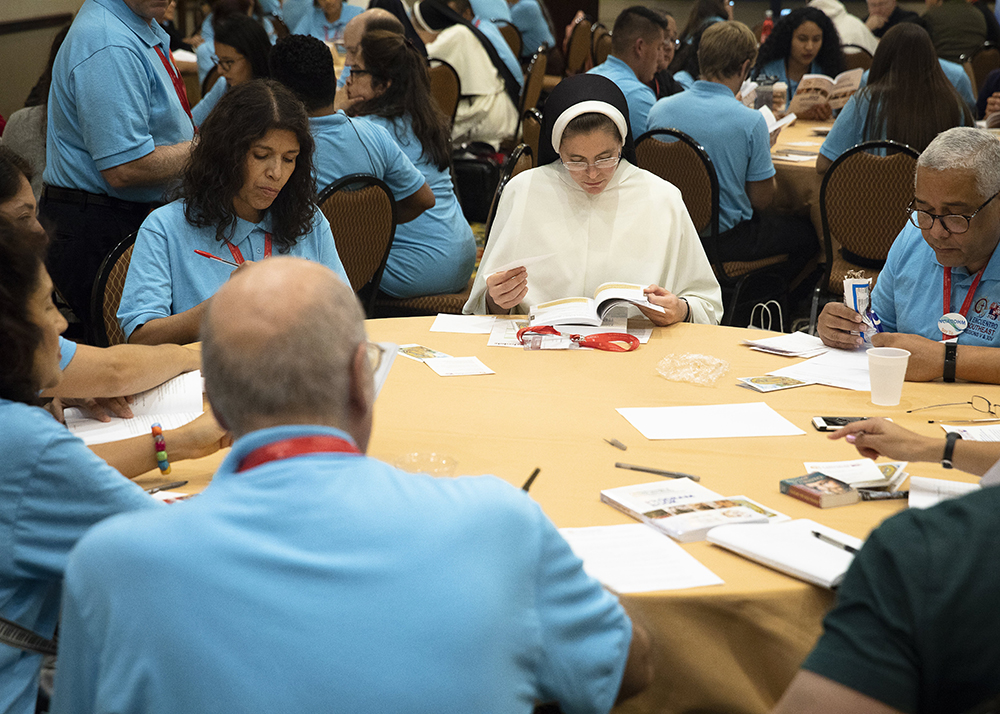
By Rhina Guidos
Chicago-based Catholic Extension plans to help 1,000 women religious with grants in memory of a group of sisters who died in late December of COVID-19 in Elm Grove, Wisconsin.
The grants, $1,000 per sister, have been established in the name of a group of School Sisters of Notre Dame, most of whom had been teachers and who died from complications of COVID-19 as the virus spread in the facility that cared for them.
Four members of the religious community died on the same day. A total of nine sisters died in a little more than a week in mid-December.
Group settings that care for the elderly, such as Notre Dame of Elm Grove in suburban Milwaukee, where the women lived, caused alarm during the COVID-19 pandemic. Many communities of men and women religious, particularly those that have members in their 80s and 90s and beyond, opted for limited contact with the public.
But as the cases in Wisconsin showed, even with precautions, the virus seeped in, leaving devastation behind.
Catholic Extension is making the special grants available through the Sisters on the Frontlines program.
Father Jack Wall, Extension’s president, said: “We are deeply honored to pay tribute to the nine School Sisters of Notre Dame who gave their lives to service in a way that will continue to help others, just as they would have wanted.”
The grants honor the following sisters for which Catholic Extension provided mini-biographies:
Sister Cynthia Borman was an educator and a handywoman. She was the fixer-upper of the church. “If you needed something fixed, she was the one to turn to.”
Sister Rose Feess was a staunch advocate for young women. She focused her efforts at the Notre Dame School in Milwaukee, where she worked with Hispanic girls.
Sister Joan Emily Kaul served as a secretary for many parishes in the Milwaukee area in addition to teaching. “She was known for her smile, which brought joy to many.”
Sister Lillia Langreck was heavily involved in racial and social justice efforts during the Milwaukee marches for fair housing, integrated busing and more.
Sister Michael Marie Laux traveled the world sharing her knowledge. From Guam to Alaska, her work was well-known.
Sister Ellen Lorenz was known as an educator and administrator. She served as president of Mount Mary University in Milwaukee for eight years followed by 25 years of working with prospective teachers.
Sister Dorothy MacIntyre liked arts and crafts, which she gave as gifts to others.
Sister Mary Alexius Portz was a musician. Sister Portz worked into her 80s, giving music lessons.
Sister Mary Elva Weisner had a special love for teaching children the sacraments. She would sing with them and bring a bright and cheery attitude.
Most of the women religious who died were in their late 80s and 90s.
In the news release, Catholic Extension said the School Sisters of Notre Dame “have already made a strong commitment as a religious congregation to help families in great distress during the pandemic, particularly immigrant families and those who have lost their jobs or had work hours drastically cut.”
The money from the Sisters on the Frontlines program is being used to respond to a variety of needs the religious congregation has identified and helped families in Minnesota, Wisconsin, Texas, Mississippi and Missouri.
It has helped with basic needs such as car repair for those who need to get to work, rent and utilities, insurance, food, medicine and medical bills, the organization said.
Editor’s Note: More about Sisters on the Frontlines can be found online at www.catholicextension.org/sisters-on-the-frontlines.
